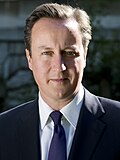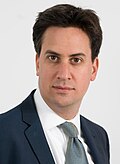| |||||||||||||||||||||||||||||||||||||||||||||||||||||||||||||||||||||||
All 27 county councils, 7 out of 55 unitary authorities, 1 out of 22 Welsh principal councils, 1 sui generis authority, and 2 directly elected mayors | |||||||||||||||||||||||||||||||||||||||||||||||||||||||||||||||||||||||
|---|---|---|---|---|---|---|---|---|---|---|---|---|---|---|---|---|---|---|---|---|---|---|---|---|---|---|---|---|---|---|---|---|---|---|---|---|---|---|---|---|---|---|---|---|---|---|---|---|---|---|---|---|---|---|---|---|---|---|---|---|---|---|---|---|---|---|---|---|---|---|---|
| |||||||||||||||||||||||||||||||||||||||||||||||||||||||||||||||||||||||
 Map showing council control (left) and largest party by ward or division (right) following the election. No election | |||||||||||||||||||||||||||||||||||||||||||||||||||||||||||||||||||||||
The 2013 United Kingdom local elections took place on Thursday 2 May 2013. [1] Elections were held in 35 English councils: all 27 non-metropolitan county councils and eight unitary authorities, and in one Welsh unitary authority. Direct mayoral elections took place in Doncaster and North Tyneside. These elections last took place on the 4 June 2009 at the same time as the 2009 European Parliament Elections, except for County Durham, Northumberland and the Anglesey where elections last took place in 2008.
Contents
- Criteria to vote
- Record choice
- Results
- England
- Non-metropolitan county councils
- Unitary authorities
- Isles of Scilly
- Mayoral elections
- Wales
- Elections not scheduled to be held in 2013 (other than by-elections)
- See also
- Notes
- References
The BBC's projected national vote share (PNV) put Labour on 29%, the Conservatives on 25%, UKIP on 23% and the Liberal Democrats on 14%. [2] Elections analysts Rallings and Thrasher estimated 29% for Labour, 26% for the Conservatives, 22% for UKIP and 13% for the Liberal Democrats. [3]
On the same day a parliamentary by-election took place in the North East constituency of South Shields following the departure of David Miliband, with the Labour Party retaining the seat.





